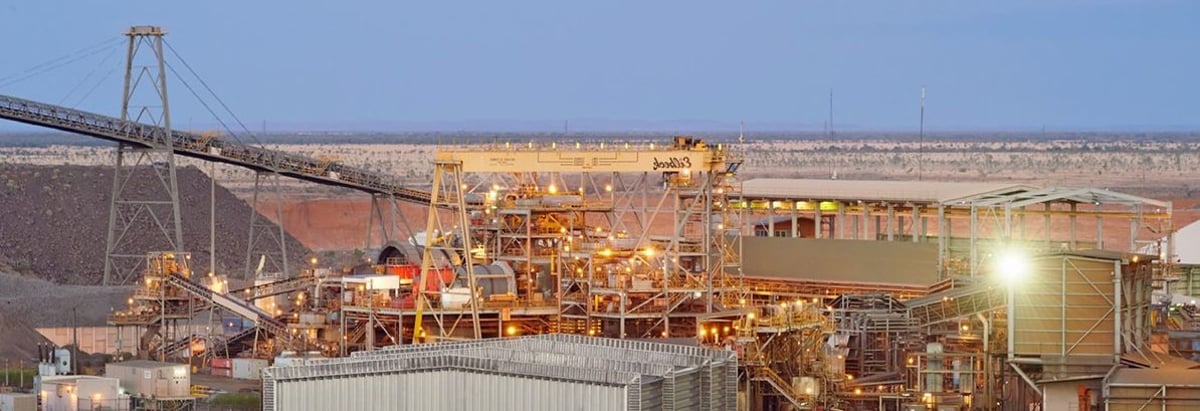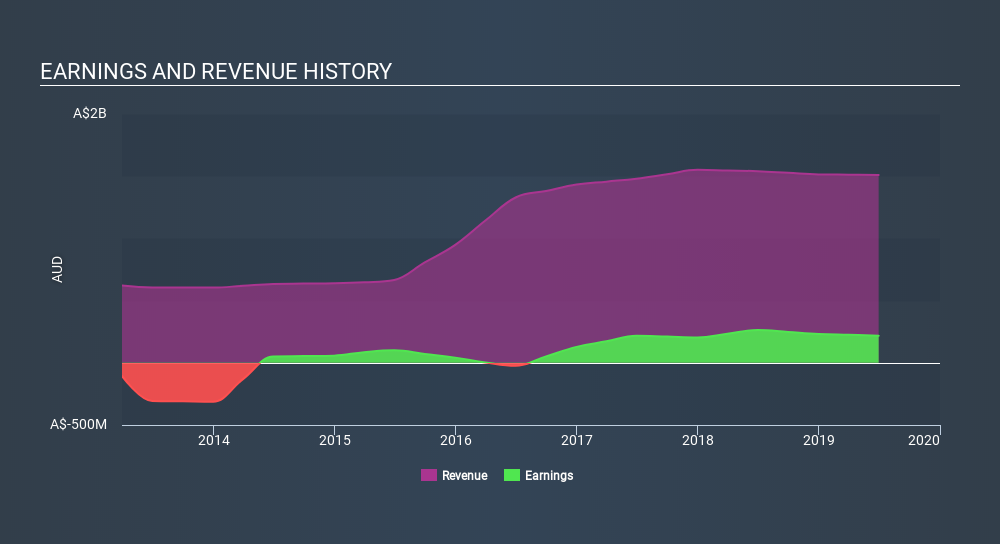- Australia
- /
- Metals and Mining
- /
- ASX:EVN
How Many Evolution Mining Limited (ASX:EVN) Shares Do Institutions Own?

The big shareholder groups in Evolution Mining Limited (ASX:EVN) have power over the company. Institutions often own shares in more established companies, while it's not unusual to see insiders own a fair bit of smaller companies. Companies that have been privatized tend to have low insider ownership.
Evolution Mining has a market capitalization of AU$6.4b, so it's too big to fly under the radar. We'd expect to see both institutions and retail investors owning a portion of the company. In the chart below, we can see that institutions are noticeable on the share registry. Let's delve deeper into each type of owner, to discover more about Evolution Mining.
Check out our latest analysis for Evolution Mining

What Does The Institutional Ownership Tell Us About Evolution Mining?
Institutions typically measure themselves against a benchmark when reporting to their own investors, so they often become more enthusiastic about a stock once it's included in a major index. We would expect most companies to have some institutions on the register, especially if they are growing.
Evolution Mining already has institutions on the share registry. Indeed, they own 28% of the company. This can indicate that the company has a certain degree of credibility in the investment community. However, it is best to be wary of relying on the supposed validation that comes with institutional investors. They too, get it wrong sometimes. If multiple institutions change their view on a stock at the same time, you could see the share price drop fast. It's therefore worth looking at Evolution Mining's earnings history, below. Of course, the future is what really matters.

We note that hedge funds don't have a meaningful investment in Evolution Mining. La Mancha Holding SARL is currently the largest shareholder, with 6.6% of shares outstanding. The second and third largest shareholders are BlackRock, Inc. and JPMorgan Chase & Co, Brokerage and Securities Investments, holding 6.3% and 3.9%, respectively.
A deeper look at our ownership data shows that the top 14 shareholders collectively hold less than 50% of the register, suggesting a large group of small holders where no one share holder has a majority.
While it makes sense to study institutional ownership data for a company, it also makes sense to study analyst sentiments to know which way the wind is blowing. There are plenty of analysts covering the stock, so it might be worth seeing what they are forecasting, too.
Insider Ownership Of Evolution Mining
The definition of company insiders can be subjective, and does vary between jurisdictions. Our data reflects individual insiders, capturing board members at the very least. Company management run the business, but the CEO will answer to the board, even if he or she is a member of it.
Insider ownership is positive when it signals leadership are thinking like the true owners of the company. However, high insider ownership can also give immense power to a small group within the company. This can be negative in some circumstances.
I can report that insiders do own shares in Evolution Mining Limited. It is a pretty big company, so it is generally a positive to see some potentially meaningful alignment. In this case, they own around AU$76m worth of shares (at current prices). If you would like to explore the question of insider alignment, you can click here to see if insiders have been buying or selling.
General Public Ownership
The general public, mostly retail investors, hold a substantial 64% stake in EVN, suggesting it is a fairly popular stock. This level of ownership gives retail investors the power to sway key policy decisions such as board composition, executive compensation, and the dividend payout ratio.
Private Company Ownership
We can see that Private Companies own 6.9%, of the shares on issue. Private companies may be related parties. Sometimes insiders have an interest in a public company through a holding in a private company, rather than in their own capacity as an individual. While it's hard to draw any broad stroke conclusions, it is worth noting as an area for further research.
Next Steps:
While it is well worth considering the different groups that own a company, there are other factors that are even more important. To that end, you should be aware of the 1 warning sign we've spotted with Evolution Mining .
Ultimately the future is most important. You can access this free report on analyst forecasts for the company.
NB: Figures in this article are calculated using data from the last twelve months, which refer to the 12-month period ending on the last date of the month the financial statement is dated. This may not be consistent with full year annual report figures.
If you spot an error that warrants correction, please contact the editor at editorial-team@simplywallst.com. This article by Simply Wall St is general in nature. It does not constitute a recommendation to buy or sell any stock, and does not take account of your objectives, or your financial situation. Simply Wall St has no position in the stocks mentioned.
We aim to bring you long-term focused research analysis driven by fundamental data. Note that our analysis may not factor in the latest price-sensitive company announcements or qualitative material. Thank you for reading.
About ASX:EVN
Evolution Mining
Engages in the exploration, mine development and operation, and sale of gold and gold-copper concentrates in Australia and Canada.
Solid track record with adequate balance sheet.
Similar Companies
Market Insights
Community Narratives



